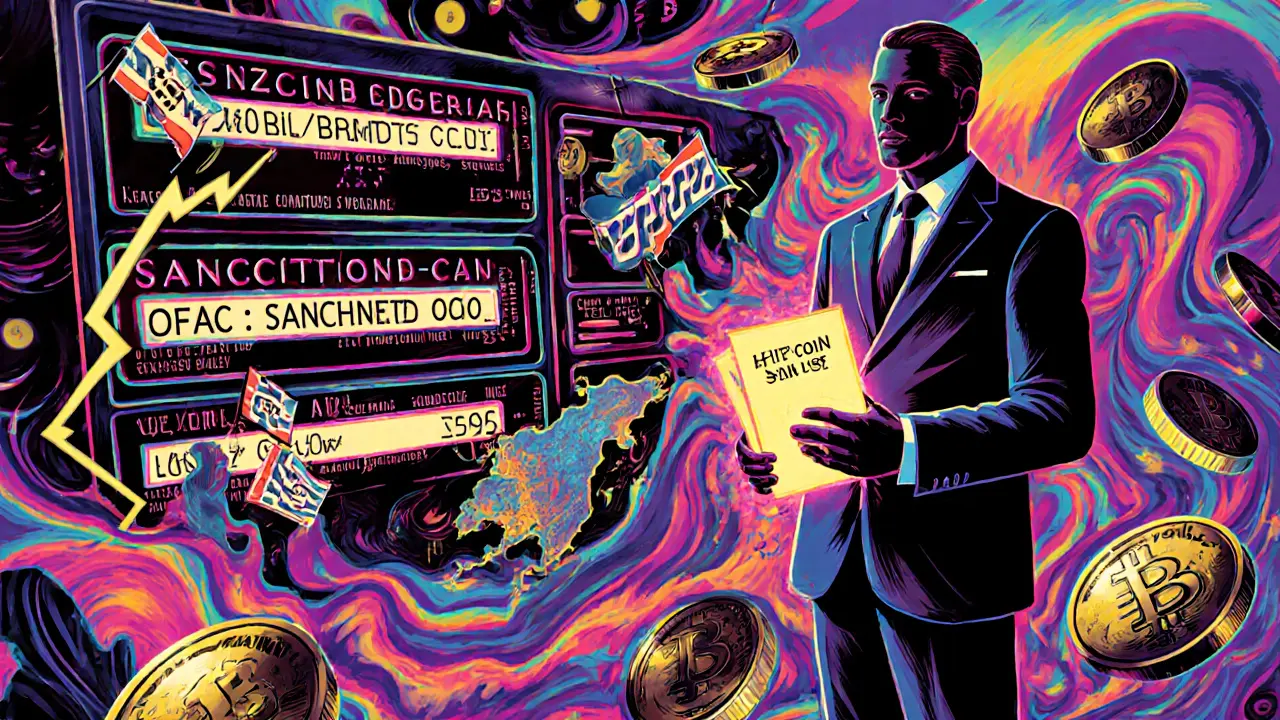Blockchain Sanctions: How Governments Block Crypto Transactions and Who Gets Hit
When governments impose blockchain sanctions, government actions that block crypto transactions tied to specific individuals, entities, or countries. Also known as crypto sanctions, these are digital freezes that stop money from moving on public ledgers—no bank account needed. Unlike traditional banking bans, blockchain sanctions hit wallets directly. If your address is flagged, no exchange, DeFi app, or peer-to-peer platform can legally process your transactions. It’s not theoretical. In 2024, the U.S. Treasury’s OFAC added over 100 crypto addresses linked to Myanmar scam hubs, North Korean hacking groups, and Russian ransomware operators to its sanctions list. These aren’t just names—they’re wallet addresses that now live in a digital blacklist.
These sanctions don’t just target bad actors. They ripple through entire ecosystems. For example, when Qatar banned all cryptocurrencies in 2024, it didn’t just shut down exchanges—it blocked access to any wallet that interacted with non-approved assets. Meanwhile, the EU’s AMLR and MiCA rules force exchanges to scan every transaction against global sanction lists. If you’re trading on a DEX like Uniswap and send funds to a flagged address—even unknowingly—you could get locked out. And it’s not just about countries. Projects like Electric Cash (ELCASH) and Vatan (VATAN) faded not just because they were dead coins, but because their tokens got swept up in broader crackdowns on low-liquidity, unverified assets. Blockchain sanctions don’t care if you’re a retail investor or a hacker. If your asset is tied to a sanctioned entity, your transaction gets dropped.
What’s really changing is how sanctions are enforced. In 2025, tools like Chainalysis and Elliptic are used by regulators to trace crypto flows in real time. A single transfer from a wallet linked to a Myanmar scam network can trigger a freeze on dozens of other addresses. Even tokenized real-world assets like BlackRock’s BUIDL aren’t immune—regulators now track who owns them and where the underlying assets are based. And it’s not just the U.S. The EU, UK, and even India are building their own crypto compliance layers. The result? A global patchwork of rules that makes cross-border crypto feel like navigating a minefield. If you’re holding a token from a project with no team, no liquidity, or no clear legal standing, you’re not just risking your money—you might be risking your access to the entire system.
Below, you’ll find real cases of how blockchain sanctions play out—from countries banning crypto outright to scams that got shut down by OFAC. No theory. No hype. Just what’s actually happening on-chain in 2025.
OFAC Cryptocurrency Sanctions and Compliance: What Crypto Businesses Must Do in 2025
OFAC cryptocurrency sanctions apply to all crypto businesses involving U.S. persons. Learn what you must do in 2025 to avoid fines, how to screen wallets, which tools to use, and why compliance isn't optional.
